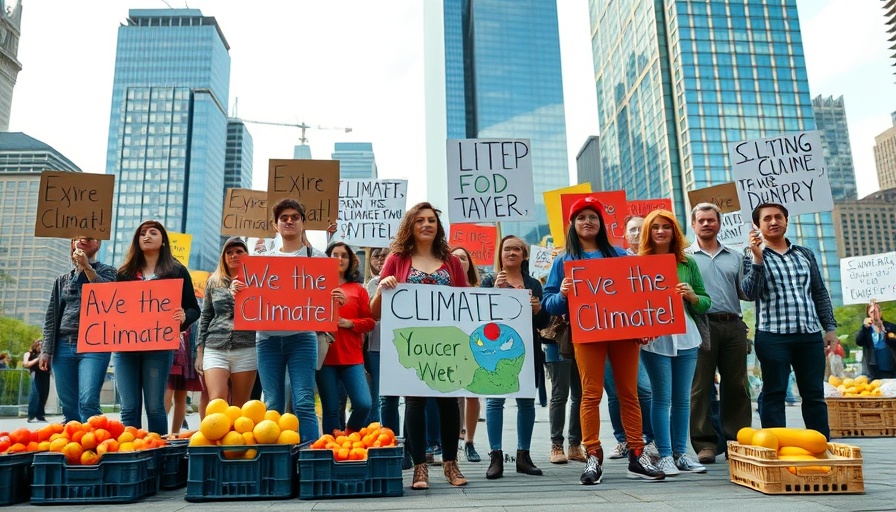
Southeast Asia's Growing Carbon Market
As nations across Southeast Asia grapple with climate change, Singapore is making a significant stride towards sustainability. The city-state is in advanced discussions to execute its first carbon trading deal with fellow ASEAN members, with Thailand currently in the spotlight. This endeavor is part of Singapore’s broader strategy to reach net-zero emissions by 2050.
The Significance of Article 6 in Carbon Trading
Central to this initiative is Article 6 of the Paris Agreement, which provides frameworks for countries to collaborate and conduct international carbon trading. Currently, Singapore has signed memorandums of understanding with over 20 nations, but only a handful have progressed to formal agreements under this article. The urgency for such agreements is compounded by Singapore's ambitions to slash its emissions to between 45 to 50 million tonnes by 2035.
A Collaborative Approach to Environmental Solutions
Benedict Chia, Singapore’s director-general of climate change, stresses the importance of a measured approach. Countries must first understand their emissions and mitigation strategies before engaging in credit trading. This insight underlines the collaborative ethos that Singapore advocates for in tackling climate challenges.
Challenges and Opportunities in Carbon Trading
Despite Singapore's proactive measures, challenges persist. Many of its carbon trading partners, particularly from Latin America and Africa, have not yet generated any eligible credits. This gap poses a hurdle towards achieving Singapore’s carbon trading goals. However, the anticipated agreement with Thailand appears promising, indicating a potential opening for further regional collaborations.
The Role of Carbon Registries
Since 2023, Singapore has engaged with carbon credit registries like Gold Standard and Verra to develop a standardized crediting protocol. This effort aims to simplify the process of trading between countries, enhancing transparency and efficiency. By leveraging established standards, Singapore hopes to create robust carbon trading frameworks that ensure sustainability practices are adhered to.
The Broader Impact on Sustainable Living
The pursuit of carbon trading agreements speaks volumes about Singapore's commitment to sustainable living. By actively participating in carbon markets, Singapore is setting an example for neighboring countries on how to effectively balance economic development with environmental conservation. As more Southeast Asian nations explore similar initiatives, a ripple effect could lead to increased adoption of eco-friendly products and technologies, paving the way for a greener future.
Looking Ahead: Future Predictions and Insights
The establishment of a working carbon trading regime in ASEAN could fundamentally change how nations pursue their climate targets. With increasing collaboration, countries might not only share resources but also innovations in green technology. This trend points toward a brighter future where sustainable development becomes the norm rather than the exception, offering hope for battling climate change more effectively.
Actionable Insights for Eco-Conscious Readers
For readers invested in sustainable living, the developments in Singapore's carbon trading offer several valuable insights. Staying informed about international climate agreements and supporting local initiatives that promote renewable energy can make a difference. Engaging in conversations about sustainable practices, from reducing plastic pollution to promoting community gardens, enhances collective efforts toward a healthier planet.
Conclusion: Taking Action for a Sustainable Future
As Singapore approaches its first significant Article 6 carbon deal, it illuminates the path towards a sustainable future that resonates across Southeast Asia. By embracing carbon trading and fostering collaboration, nations can effectively converge their efforts in combating climate change. Readers are encouraged to adopt eco-friendly habits and support initiatives that enhance sustainability practices in their communities.
 Add Row
Add Row  Add
Add 



Write A Comment